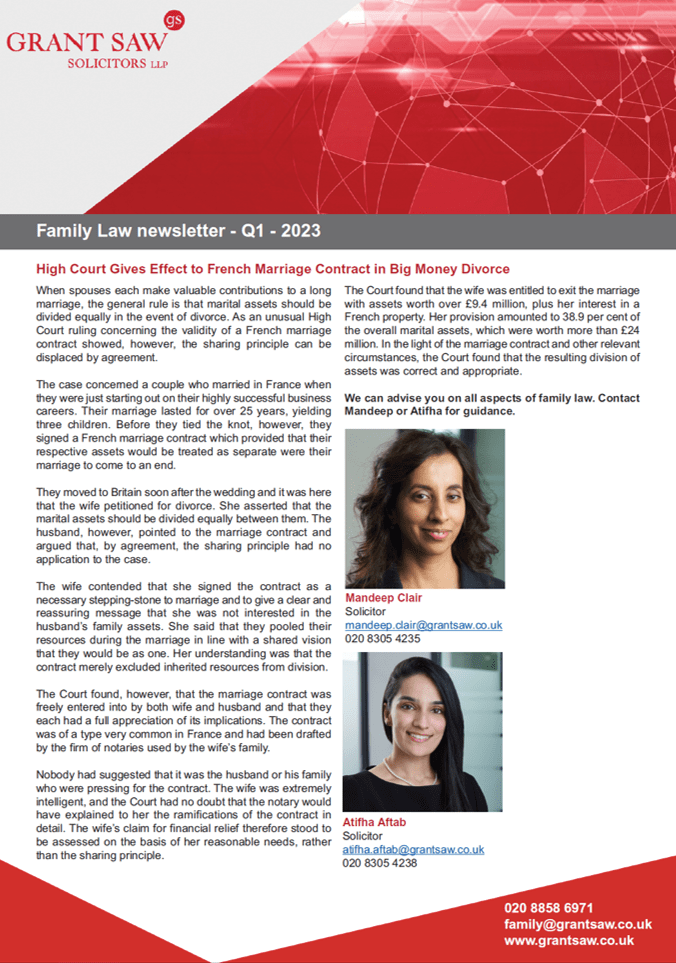In order for a creditor to present a bankruptcy petition, the debt owing must be £5,000 or more. In this section, we set out the steps required to issue a bankruptcy petition, the consequences of the bankruptcy petition, how to respond to a bankruptcy petition and the consequences of being made bankrupt.
Issuing a bankruptcy petition
If you have tried to obtain payment of your debt from an individual, without success, you can issue a bankruptcy petition against the debtor. If the debt owed to you is by a company please see our winding up petition section.
To issue a bankruptcy petition against a debtor the following must be completed:
- The bankruptcy petition must include prescribed information as provided by rules 10.7, 10.8 and 10.9 of the Insolvency Rules 2016 regarding a creditor’s petition.
- A search must be carried out to see whether any other petitions have been issued against the debtor and a certificate to this effect must be endorsed on the petition.
- The petition must be verified by a Statement of Truth.
- The petition must be sent to the correct court with the correct number of copies and it must be accompanied by the Official Receiver’s deposit of £1,500 and the court fee of £343.
- The bankruptcy petition will be stamped with the court seal and given a hearing date.
- The court will notify the Land Charges Department that the petition has been issued and this will be added to the public register.
- The court will send you the issued documents for service on the debtor.
A bankruptcy petition must be served personally on the debtor at least 14 days before the date of the hearing.
Consequences of a bankruptcy petition being presented
The presentation of a bankruptcy petition has the following consequences:
- The Chief Land Registrar is notified that a petition has been issued meaning your name will be added to the bankruptcy register as a pending action. Other creditors may become aware and your bank account could be frozen.
- Any transaction that you enter into will be void unless approved by the trustee in bankruptcy or the court. This could have severe implications on your business or sale of a property or asset.
- The petition cannot be withdrawn without court permission at the hearing making it difficult to pay the petitioner, especially if you have other creditors who become aware of the petition.
What to do if a bankruptcy petition has been served on you.
If a bankruptcy petition has been served on you, there are a number of factors to be considered when deciding how best to respond to it. For instance:
- You may wish to challenge the petition should you not accept that you owe money;
- You may wish to challenge the petition in the event the petitioner hasn’t complied with the correct procedure;
- You can come to an agreement with the petitioner to repay the debt;
- You may enter an agreement with all your creditors in respect of all of your debts. This is known as an individual voluntary arrangement (IVA); or
- You can decide to accept bankruptcy as your only or best option.
Severity of a bankruptcy order
If the court makes a bankruptcy order, this will be drawn up and a copy sent to the local Official Receiver’s office. The Official Receiver’s office will notify the Land Charges Department that the order has been made and this will be added to the public register of writs and orders. The order will be advertised in the London Gazette and local newspapers as the Official Receiver’s office feels appropriate.
The consequences of being made bankrupt can be life-changing and severe. Below we set out some of these consequences:
- The debtor and their family may lose their home;
- The debtor may lose their business;
- The debtor may have to resign as a company director;
- The debtor’s credit rating may be significantly affected; and
- You may be subject to some stringent bankruptcy restrictions
If you are a creditor and wish to serve a bankruptcy petition on a individual, please see our debt collection price guide, which sets out our fixed fees for preparing and serving a bankruptcy petition
If you are an individual who wishes to challenge a bankruptcy petition, we shall provide you with an estimate of our fees based on the type of work required.
For more information, please get in touch today by emailing litigation@grantsaw.co.uk or contact our insolvency experts directly on 020 8858 6971.
Meet the Bankruptcy petitions team















































